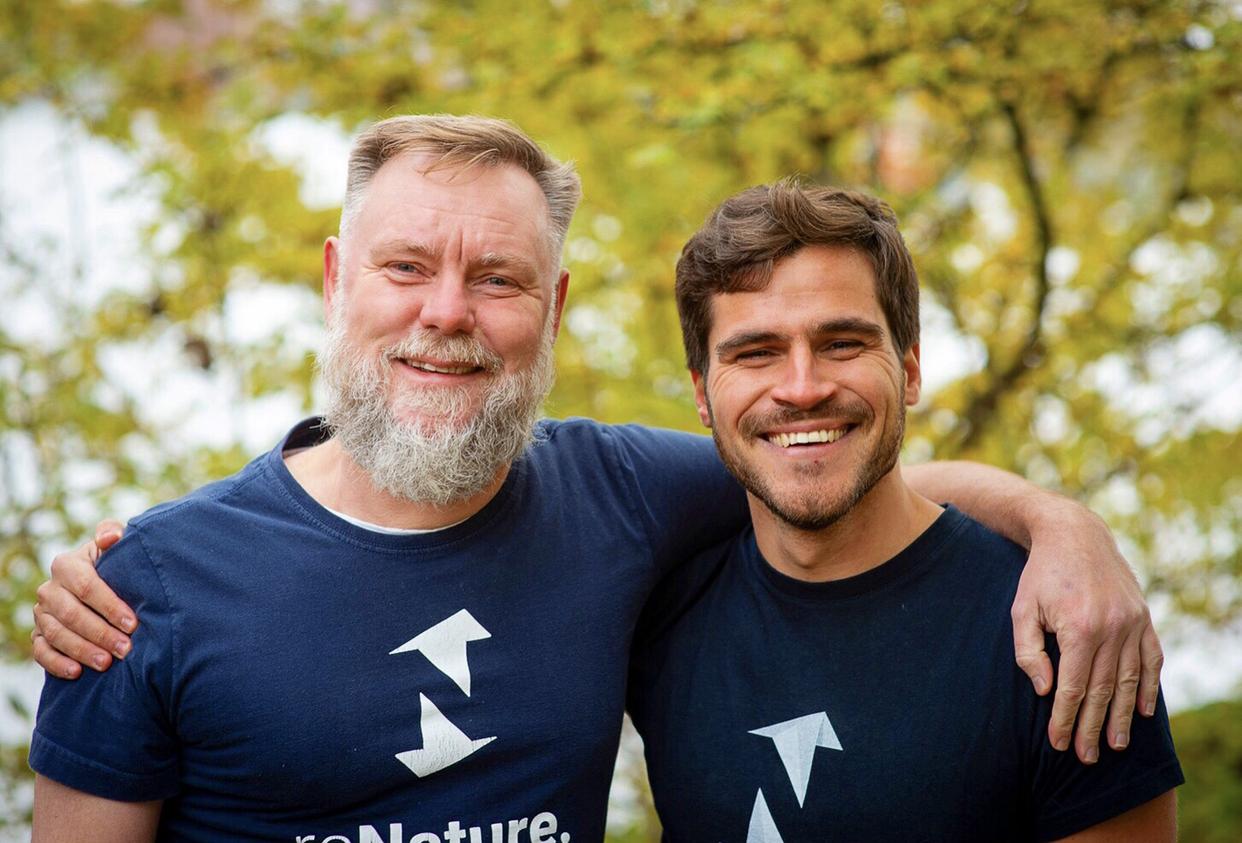The DOEN Foundation is fostering the efforts of the Regenerative Agriculture startup reNature with financial support of € 250,000.
Dutch based DOEN Foundation has committed to to support the young startup reNature. The purpose of the grant is to increase the foundation’s work capacity to respond to the increasing demand for agroforestry. reNature develops and realizes regenerative agriculture projects worldwide and is a thought leader in the field of agricultural sustainability. reNature’s projects vary in size, from 1 hectare to several thousand hectares, whereby the production of, for example, coffee, cocoa, cotton and palm oil is improved by means of a balanced planting plan. The startup is currently working on projects in Kenya (moringa), Indonesia (white pepper), Brazil (cotton and livestock) and Mexico (citrus).
Parties interested in the work of reNature include both small farmers and multinationals. Nestlé recently awarded reNature with a prize of € 20,000 for biodiversity action.
In 2018, Marco de Boer (the Netherlands) and Felipe Villela (Brazil) started the reNature foundation, whose aim is to make Agroforestry mainstream. Due to the growing demand for implementation, they founded the company reNature at the end of 2019 for which they received the grant from the DOEN Foundation. With this amount, the international team of experts from Brazil, Portugal, Germany, Great Britain, the Netherlands and the USA will double in the coming year.
reNature is commissioned to develop nature-inclusive agricultural systems based on Agroforestry principles in which nature and agriculture work together instead of competing with each other. Agroforestry simulates a natural situation in which agricultural crops are processed at different levels. The bottom layer consists of vegetables and herbs. In the layer above, bushes are planted for berries and fruits. The top layer consists of trees that can serve to provide shade, biomass or wood production.
The difference between Agroforestry and food forests is that Agroforestry allows the professional farmer to have a practically feasible planting schedule. The farmer can therefore continue to use smaller land machines.
Regenerative agriculture and agroforestry positively affect both nature and the farmer’s wallet in three core ways:
Social impact: food security and sovereignty, motivating the next generation of farmers, rural development and empowerment of women.
Economic impact: no external input costs for fertilizers and pesticides, different income streams as a result of diversification and potentially increasing yields per hectare.
For DOEN an important factor in the decision to support reNature was how the organisation is initiating the agricultural transition. reNature first develops a model farm of some hectares together with an expert and a local farmer. On this example farm, the farmers can see for themselves in real life how the system is beneficial. After this, the farm is scaled up to a model school where local farmers receive training in this farming method. The transition is complete when financial institutions, buyers and producers step in to help the local farmers and cooperatives in the transition to regenerative agriculture. An example of this is a pilot with Verstegen spices BV in which the first agroforestry white pepper plantation was planted in Indonesia last year.
Although there are plans for the development of a large-scale regenerative dairy farm in the Netherlands, the organization does not yet have an ongoing local project. The reason for this is the strictness of zoning plans in the Netherlands and the rigid legislation regarding the planting and management of trees. reNature advocates for local authorities to adjust these restrictions.
DOEN supports frontrunners who can make a lasting change. reNature has already proven to inspire many people. With our support, we enable them to make a difference.Maarten Derksen, DOEN
This support gives us an enormous boost; we can grow in capacity and realize more projects worldwide.Marco de Boer, reNature
DOEN Foundation, the fund of the Dutch Charity Lotteries. DOEN believes that a green, social and creative society is possible. We see that many people from entrepreneurship are actively working on innovative solutions for a better world. They lead the way, dare to take risks and cause change. They break through old structures and create new perspectives on existing problems. These predecessors are also a source of inspiration for others. DOEN's role is to support these pioneers in the first phase, to jump-start initiatives and thereby stimulate innovation. After this first phase, DOEN transfers the initiatives where possible to other parties in order to increase the impact of the initiatives.
reNature Investments BV (reNature) is a Dutch for-profit organization. reNature develops and implements regenerative agriculture and agroforestry systems that generate both short and long-term income for the local farmers & community and have a positive impact on the environment.


